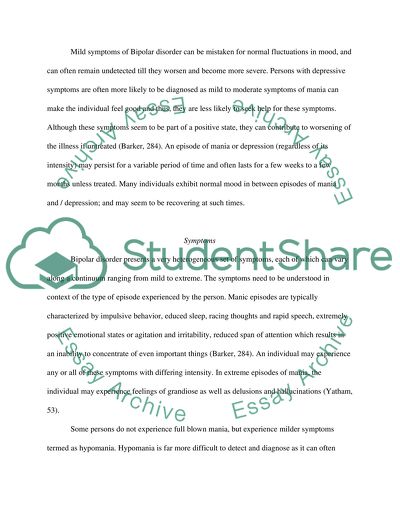Cite this document
(“Bipolar Disorder Essay Example | Topics and Well Written Essays - 750 words”, n.d.)
Bipolar Disorder Essay Example | Topics and Well Written Essays - 750 words. Retrieved from https://studentshare.org/psychology/1447471-mental-health-essay
Bipolar Disorder Essay Example | Topics and Well Written Essays - 750 words. Retrieved from https://studentshare.org/psychology/1447471-mental-health-essay
(Bipolar Disorder Essay Example | Topics and Well Written Essays - 750 Words)
Bipolar Disorder Essay Example | Topics and Well Written Essays - 750 Words. https://studentshare.org/psychology/1447471-mental-health-essay.
Bipolar Disorder Essay Example | Topics and Well Written Essays - 750 Words. https://studentshare.org/psychology/1447471-mental-health-essay.
“Bipolar Disorder Essay Example | Topics and Well Written Essays - 750 Words”, n.d. https://studentshare.org/psychology/1447471-mental-health-essay.


